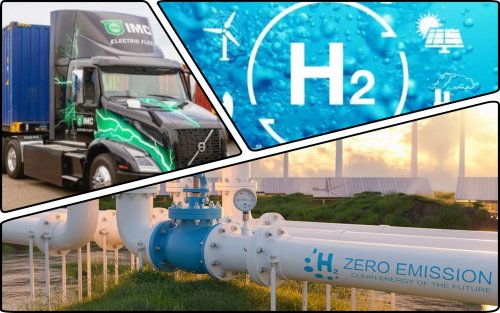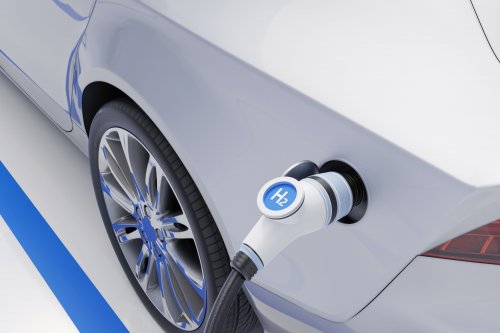Spanish startup H2SITE has received $13.2 million to solve hydrogen transportation problems, as the tiny molecules cause cracks in the steel of tanks and pipes.
The investment was provided by Bill Gates-led Breakthrough Energy Ventures, the French energy company Engie SA and the Norwegian oil giant Equinor ASA, reports Bloomberg.
The material noted that if hydrogen is to become the clean fuel of the future, urgent technological solutions are needed to keep it in place and move it at will.
Existing methods of storing and transporting hydrogen can be very expensive, especially compared to moving natural gas. IN G2SITE noted that its transportation can cost three times more than production.
The startup offers to provide this service for a fraction of the cost if its technology can scale.
The startup will work in two directions.
- A mixture with natural gas
H2SITE plans to use existing gas pipelines to transport hydrogen from the place of its production to the place of consumption in a mixture of about 30% H2 and natural gas. The idea is that diluted hydrogen will be less corrosive to existing steel infrastructure.
Freshly produced hydrogen will be injected into a pipeline containing natural gas close to where the hydrogen is produced and then recovered through a filter where it is to be consumed.
H2SITE plans to use some metals, particularly palladium, because under certain conditions of heat and pressure, the hydrogen atom on the surface of the palladium alloy can split and regenerate. This means being able to filter 99.9% pure hydrogen from a pipe that transports 5% to 30% hydrogen, the rest being natural gas.
Hydrogen can be transported on ships using ammonia (NH₃) or methanol (CH3OH), which can easily be turned into a liquid. Currently, in countries such as Australia, where there are many RES capacities, projects are being developed to convert hydrogen into ammonia and recover it after transportation through the reverse reaction. However, these processes are very energy-intensive.
According to Angie-Isabelle Dotzenrath, BP Plc's executive vice-president of gas and low-carbon energy, reducing the cost of cracking ammonia will be a key driver for major investment in expanding hydrogen production for export.
- Breaker for ammonia or methanol
According to Andres Galnares, chief executive officer of H2SITE, all that needs to be done is to increase the number of palladium membranes and adjust the temperature and pressure at which the reactor operates.
The startup has reactors that can be used to filter 40 kilograms of hydrogen per day, while its commercial installations will be able to process 200 kg and 500 kg respectively. Galnares says that once scaled up, filtering the clean fuel would cost about $0.80 per kilogram of hydrogen.
The startup already has three sites where the technology will be tested. In the UK, ammonia made from renewable hydrogen will be converted to hydrogen. In Spain, a consortium of energy companies and research centers will test the production, injection and transport of hydrogen, while H2SITE will provide the filtration reactors. In France, H2SITE reactors will produce hydrogen for vehicles.
Sébastien Arbola, Executive Vice President of Engie, states that when building hydrogen infrastructure or repurposing existing pipelines, it is important to ensure no leakage hydrogen After all, hydrogen, although not a greenhouse gas, can prolong the life of existing powerful warming gases, such as methane, or cause the formation of another greenhouse gas, ozone.
We will remind research has shown that hydrogen is 11 times more dangerous for the climate than CO2.
As previously EcoPolitic reported, the port of Belgium will be built one of the largest centers in Europe green hydrogen.




